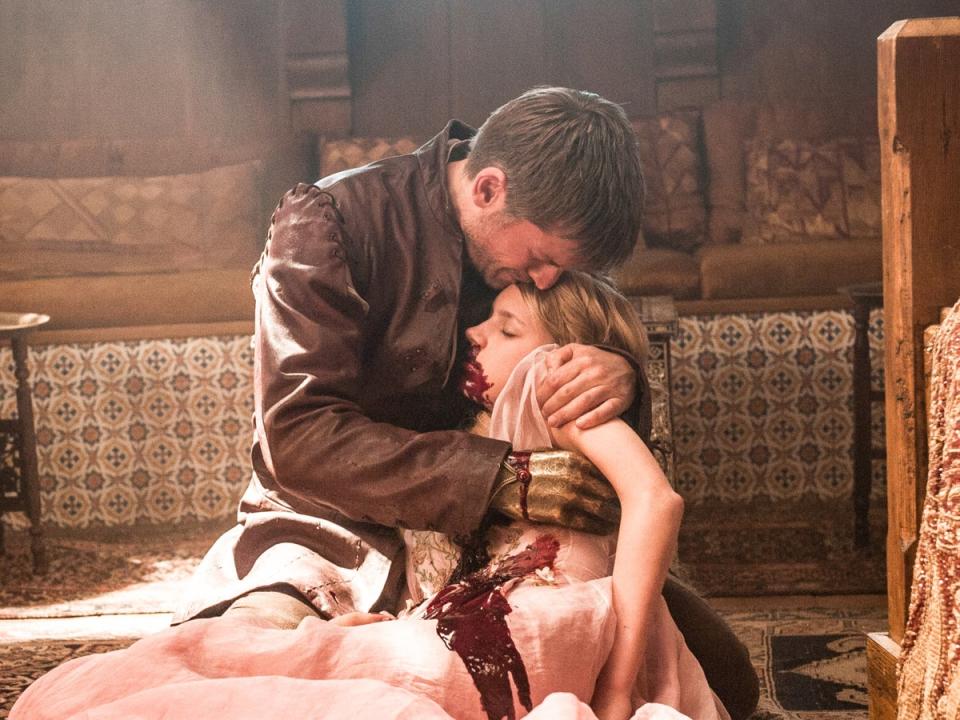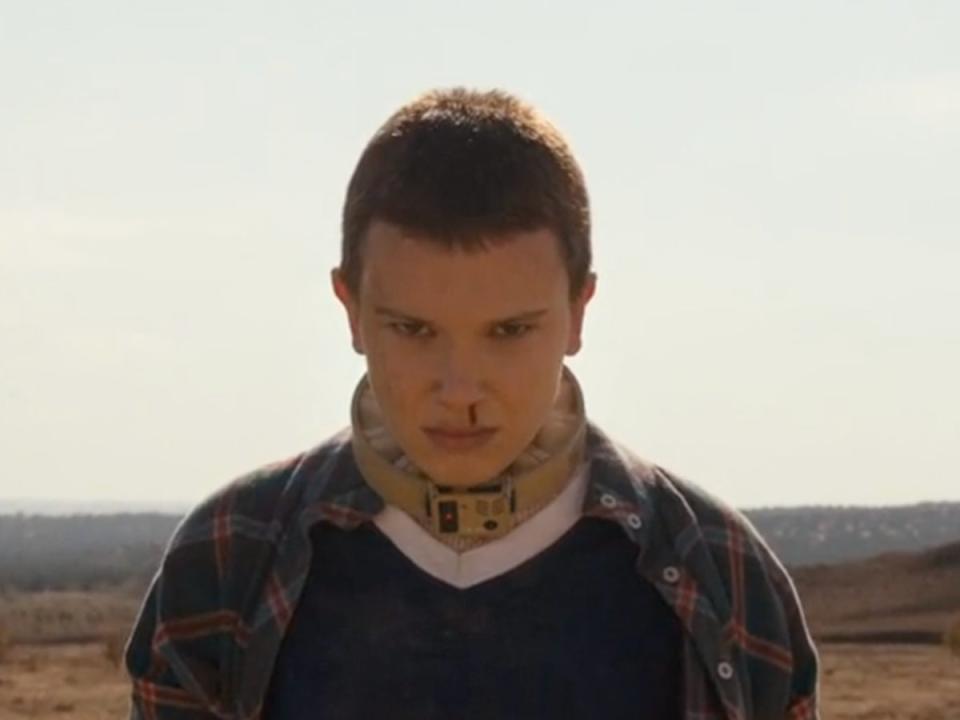Millie Bobby Brown couldn’t be more wrong – Game of Thrones-style character deaths are TV’s laziest trope

How much bloodlust is too much bloodlust? When you work in genre television, this is not such an easy question to answer. The decision to kill – or benevolently spare – beloved characters is never taken lightly. Get too trigger-happy, and you’ll sour the very ingredients that made your show work. Prove too reluctant to kill off your faves and people will start saying you’ve become predictable.
It was this complaint that was levelled at Stranger Things creators Matt and Ross Duffer recently, by members of the show’s own cast (Millie Bobby Brown and Noah Schnapp). Stranger Things, one of the biggest series of the past decade, has always proved unwilling to slaughter its darlings, despite its horror pretentions. The season four finale – spoiler alert, I suppose – killed off just one secondary character, who had been introduced as cannon fodder at the start of the season. Brown called on the Duffer brothers to adopt a Game of Thrones-style remorselessness when it comes to killing off characters. “The Duffer brothers are two sensitive Sallies,” she said. “We need to be Game of Thrones.” While the comment, and the Duffers’ response, was more lighthearted than some of the reportage has made out, it is nonetheless an idea worth discussing.
Thrones was renowned for its willingness to sythe down characters in their prime. To this day, the words “Red Wedding” are enough to send chills down the spine of many a Westeros fan. But while a shock massacre may make for a good headline or two – and gave Thrones a lasting bad-boy reputation for murderousness, as Brown’s comments prove – it wasn’t always the right way to go about telling a story. As the series went on, it found itself unable to recapture the thrills of earlier surprise deaths. Now, with the roundly disliked final season still lingering on everyone’s tastebuds, the hype around Thrones has all but fizzled out.
Not that Thrones was alone in over-indulging the urge to slice and dice its way through a cast list. Genre TV – crime shows, cop shows, sci-fi shows, etc – has always milked the grim reaper for all it’s worth. Breaking Bad went death-crazy towards the end of its run, knocking off characters both major and minor, to – it must be said – diminishing returns. 24 would gun down numerous key characters all within a single day. But the problem isn’t just a matter of quantity. Double-digit body counts never hurt The Wire or The Sopranos. It’s a matter of purpose. What higher function does the bloodshed serve? In Game of Thrones, and elsewhere, too often the idea is simply to shock.
There is also the matter of credibility. If a series runs for long enough, the piles of cadaverous ex-castmembers starts to seem ridiculous. Consider the seminal US police procedural NYPD Blue – by the end of the series, Dennis Franz’s character had separately lost a wife, a son, and two partners to violent and sudden ends. Throw in his late-season bout of prostate cancer and you have to wonder what sort of witch he must have wronged in a past life. The strain on credulity may be less severe with shows like Breaking Bad or Thrones, but it’s still there.
Of course, deployed well, a shock character death can tip a series from adequacy to greatness, from greatness to immortality. The most potent character deaths leave die-hard fans grieving as they would for a loved one (probably more akin to a third cousin than a treasured parent, admittedly). They can feel cathartic, infuriating or devastating; even more so than with films, TV gives us the ability to warm to characters over time, come to really know and feel them. But in Thrones, this was seldom the case.
The Stranger Things kids were right about one thing, though – a reluctance to pull the trigger is just as damaging to a series’ integrity as being over-eager. Stranger Things has indeed fallen victim to this, but to put it down to “sensitivity” is surely an over-simplification. A more cynical mind might suggest there’s a commercial incentive to keeping the show’s roster of established stars safe from the claws of the Demogorgon. Part of the thrill of a big character death is the risk of usurping a status quo – that flighty moment of where can they possibly go from here? Thrones nailed it with the death of Sean Bean back in season one. But later on, the most popular characters – Arya Stark, Tyrion Lannister – tended to make it through unscathed. When Kit Harington shuffled off the mortal coil, the Thrones writers shuffled him right back on it again. Had they grown soft? Or was the show simply unprepared to lose one of its biggest assets?

If Stranger Things was serious about its fidelity to the horror-movie ethos, the question wouldn’t be whether or not characters should be killed off – it’d be how gnarly they can make the death scenes. But while it wouldn’t hurt the series to raise its stakes a little, we shouldn’t be baying for carnage just yet. Call me a sensitive Sally all you like, but Game of Thrones showed the abattoir approach to storytelling only leaves you with a whole lot of mess.

 Yahoo Sports
Yahoo Sports 